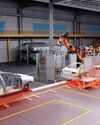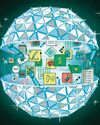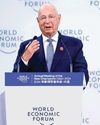
He plans to defer to his helper to explain some simpler topics to his class of high schoolers, like the technical aspects of how a cotton gin worked, in order to free up time for him to discuss more analytical concepts, like the effects of the first Industrial Revolution.
His new assistant? ChatGPT.
"What I feel that I don't have to do any longer is cover all the content," Paccone told a group of more than 40 educators in a May Zoom workshop, which he organized. If artificial intelligence is on the cusp of reshaping entire aspects of society-from health care to warfare-the realm that leaps first to many minds is education. Asked a question online, ChatGPT will produce an answer that reads like an essay. So students and teachers preparing for a new school year are also grappling with AI's implications for learning, homework, and integrity. Paccone is among many high school teachers already experimenting with ChatGPT in the classroom. But the tool is inspiring as much trepidation as it is excitement.
Earlier this year, as OpenAI.com, the website of the company that produced ChatGPT, became one of the 50 most visited websites in the world, some of the nation's largest school districts, from New York City to Los Angeles, banned its usage in the classroom while they worked to formulate policies around it. Meanwhile, teachers desperate to figure out how to harness the tech for good congregated in Facebook groups like ChatGPT for Teachers (about 300,000 members) and The AI Classroom (more than 20,000 members).
"The majority of the teachers are panicked because they see [ChatGPT] as a cheating tool, a tool for kids to plagiarize," says Rachael Rankin, a high school principal in Newton Falls, outside of Youngstown, Ohio.
This story is from the September 04, 2023 edition of Time.
Start your 7-day Magzter GOLD free trial to access thousands of curated premium stories, and 9,000+ magazines and newspapers.
Already a subscriber ? Sign In
This story is from the September 04, 2023 edition of Time.
Start your 7-day Magzter GOLD free trial to access thousands of curated premium stories, and 9,000+ magazines and newspapers.
Already a subscriber? Sign In

Q & A: Borge Brende
The World Economic Forum president talks with TIME editor Sam Jacobs

Q & A - Rene Haas
Arm's CEO on how his hardware is supporting the Fourth Industrial Revolution

The conflicts looming over 2025
WHEN DONALD TRUMP TOOK THE OATH OF OFFICE AS President in January 2017, his first foreign policy priority was to get tough on China. The Trump 2.0 Administration will continue that work. But when he strides back into the Oval Office in January 2025, Trump will also become responsible for U.S. management of two dangerous wars, the kinds of hot foreign policy crises he was fortunate to avoid during his first term.

Rev Lebaredian
Nvidia's vice president of Omniverse and simulation technology on training AI-powered robots

5 predictions for AI in 2025
New uses and policy questions come into focus

Roy Wood Jr. The comedian on his new stand-up special, the importance of working in food service, and learning from Keanu Reeves
8 QUESTIONS WITH Roy Wood Jr.

A call for global cooperation in the Intelligent Age
Cultivate wisdom along with innovation

The D.C. Brief
IN THE END, THE THREAT OF A FARright revolt proved more menacing than most imagined, as Republican Mike Johnson initially came up short on Jan. 3 during the first balloting to keep him as Speaker.

The digital labor revolution
OVER THE PAST TWO YEARS, WE'VE WITNESSED advances in AI that have captured our imaginations with unprecedented capabilities in language and ingenuity. And yet, as impressive as these developments have been, they're only the opening act. We are now entering a new era of autonomous AI agents that take action on their own and augment the work of humans. This isn't just an evolution of technology. It's a revolution that will fundamentally redefine how humans work, live, and connect with one another from this point forward.

Tech we can trust
Serving humanity's best interests must be at the center of progress